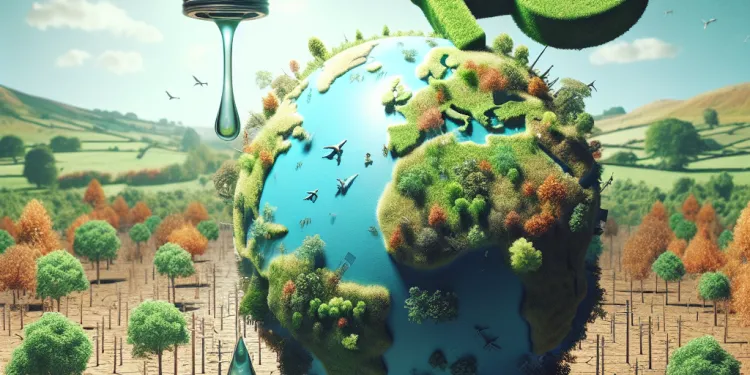
Find Help
More Items From Ergsy search
-
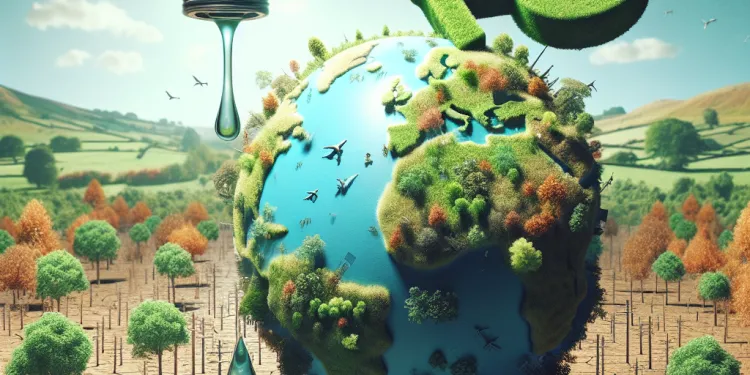
What impact does water loss have on the environment in the UK?
Relevance: 100%
-

How significant is the water loss problem in the UK?
Relevance: 84%
-

What are the financial implications of water loss for the UK?
Relevance: 83%
-
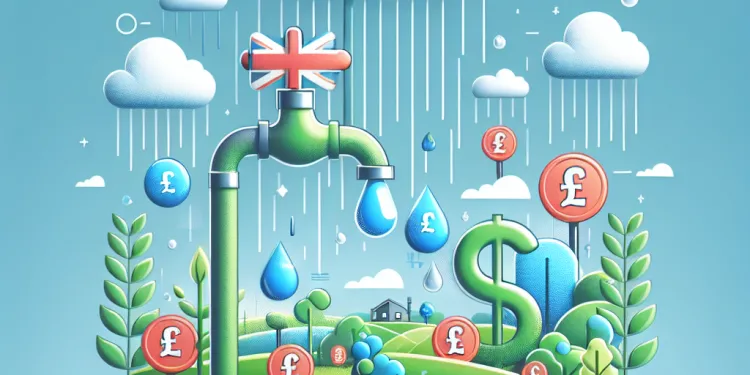
What causes water loss in the UK?
Relevance: 82%
-

How are new technologies helping to reduce water loss in the UK?
Relevance: 75%
-
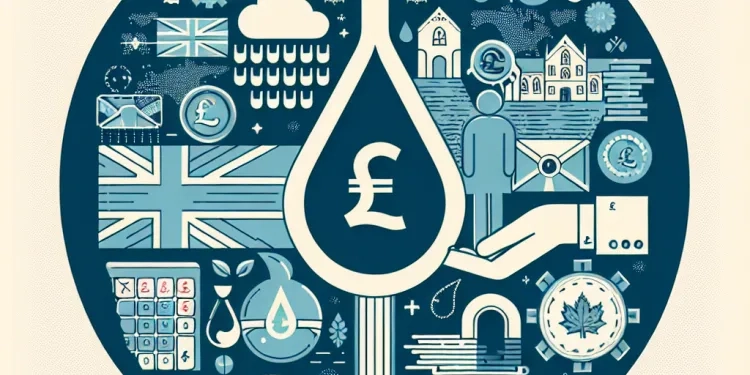
Are there any government initiatives to tackle water loss in the UK?
Relevance: 75%
-

What is the role of consumers in reducing water loss?
Relevance: 75%
-

What measures are being taken to address water loss in the UK?
Relevance: 75%
-

Can individual actions significantly impact overall water loss?
Relevance: 69%
-
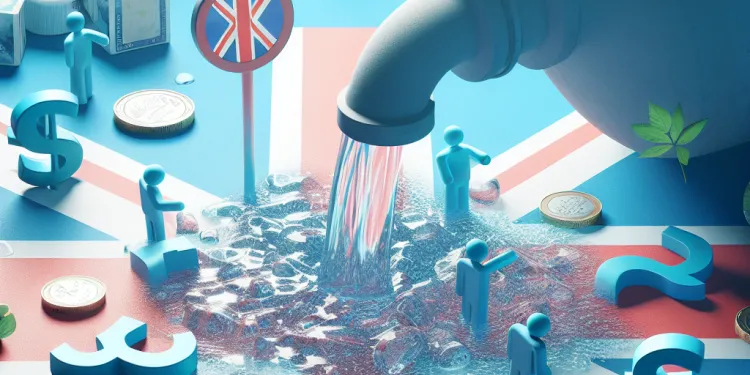
How much water is lost in the UK through poor infrastructure?
Relevance: 59%
-
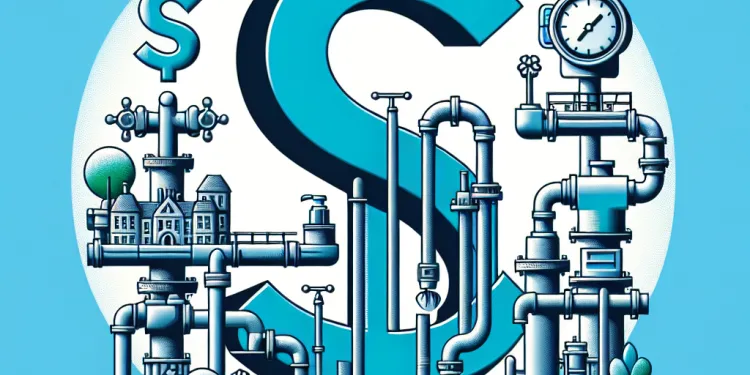
Are there penalties for not maintaining water infrastructure?
Relevance: 55%
-

What are the environmental impacts of cremation?
Relevance: 55%
-

What is the expected timeframe to significantly reduce water loss in the UK?
Relevance: 54%
-
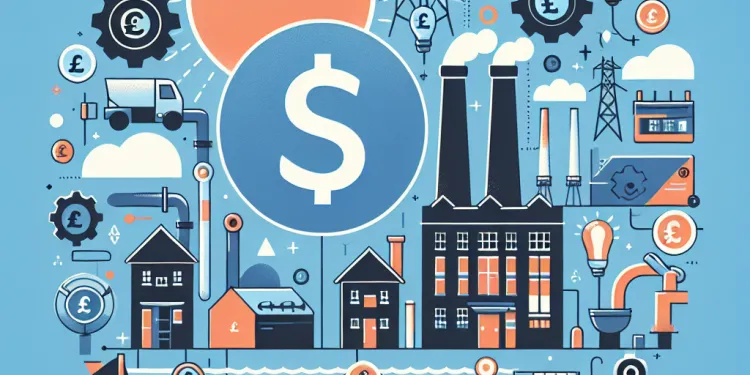
Are water companies responsible for maintaining water infrastructure in the UK?
Relevance: 53%
-

Are there legal guidelines for sewage discharge into UK waters?
Relevance: 51%
-

What happens if a water main bursts?
Relevance: 50%
-

Who regulates the performance and compliance of UK water companies?
Relevance: 50%
-

What does water infrastructure maintenance involve?
Relevance: 50%
-
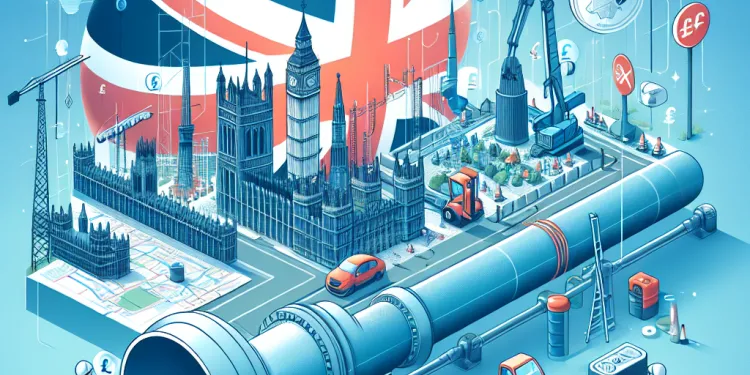
Do water companies have to update the infrastructure?
Relevance: 49%
-

Are there penalties for water companies besides issuing refunds?
Relevance: 48%
-

What environmental considerations are there for ground burials?
Relevance: 48%
-
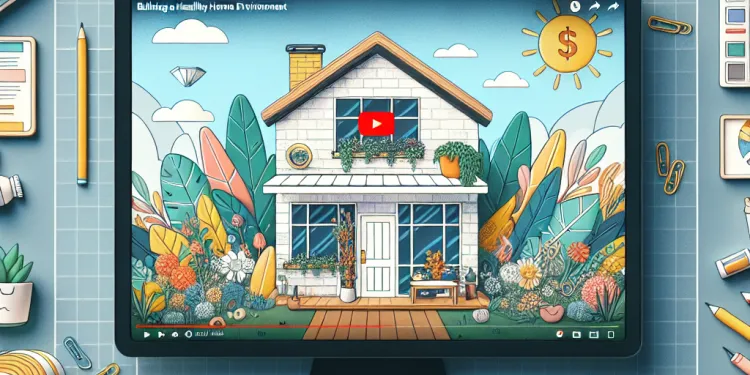
Building a Healthy Home Environment
Relevance: 48%
-
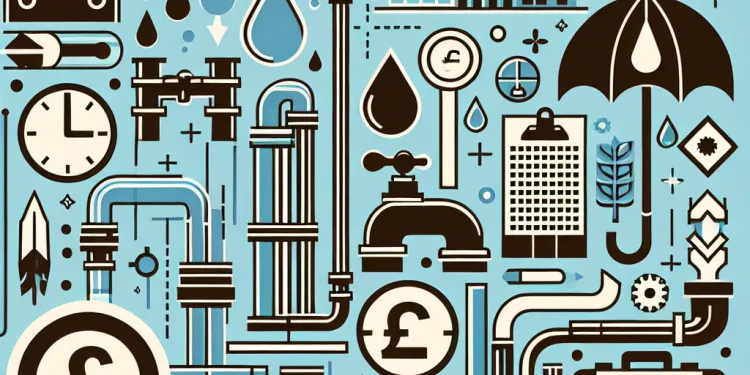
Do water companies have long-term infrastructure plans?
Relevance: 48%
-

Can weight loss drugs cause dehydration?
Relevance: 47%
-

What role do water companies play in sewage pollution?
Relevance: 47%
-

Why is it challenging to fix water leaks in the UK?
Relevance: 47%
-
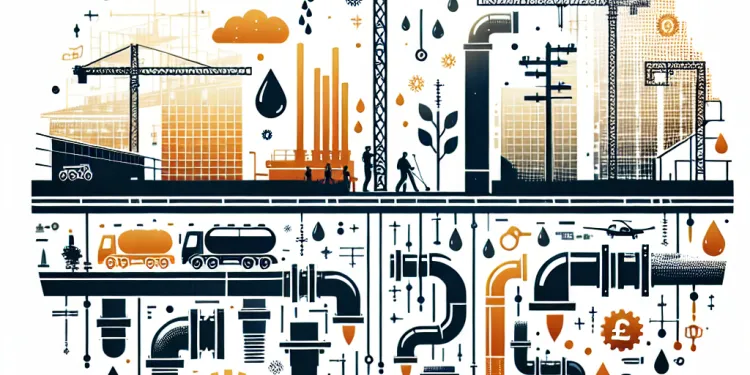
How are infrastructure priorities determined by water companies?
Relevance: 46%
-

How transparent are water companies regarding infrastructure improvements?
Relevance: 46%
-

Are water companies responsible to maintain and update infrastructure in the UK?
Relevance: 46%
-

Are there initiatives to improve water efficiency in infrastructure?
Relevance: 46%
-

How do water companies detect leaks?
Relevance: 45%
-
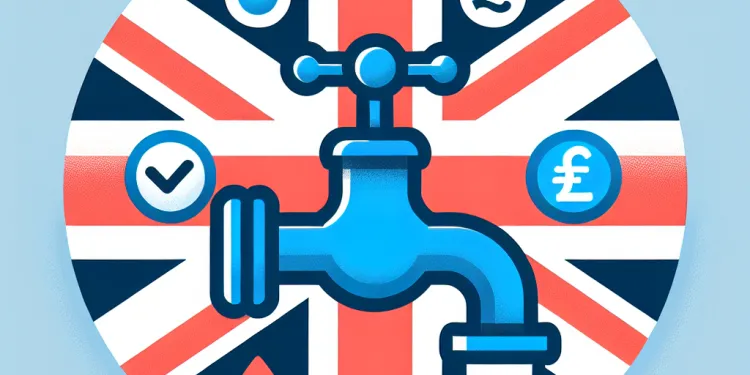
What criteria were used to determine the refunds for UK water companies?
Relevance: 45%
-

How old is the water infrastructure in the UK?
Relevance: 44%
-
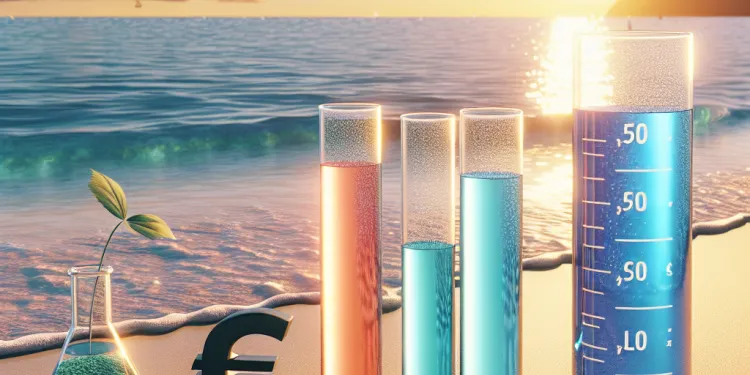
Are some UK beaches rated better for water quality than others?
Relevance: 44%
-
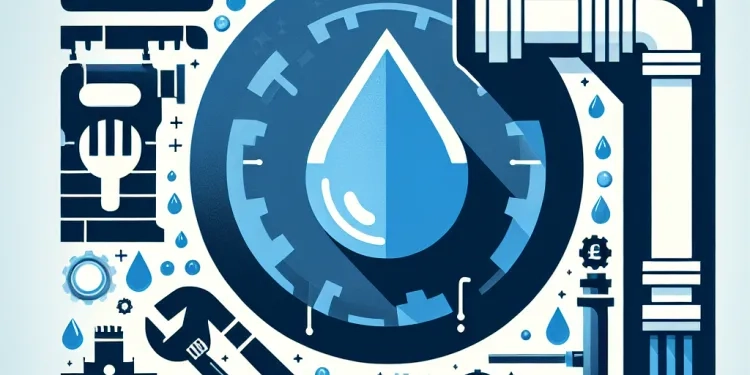
What are common signs of leaks in water infrastructure?
Relevance: 44%
-

Can drinking water help prevent tooth decay?
Relevance: 43%
-

How do water companies fund infrastructure updates?
Relevance: 43%
-

Can customers report issues with water infrastructure?
Relevance: 43%
-
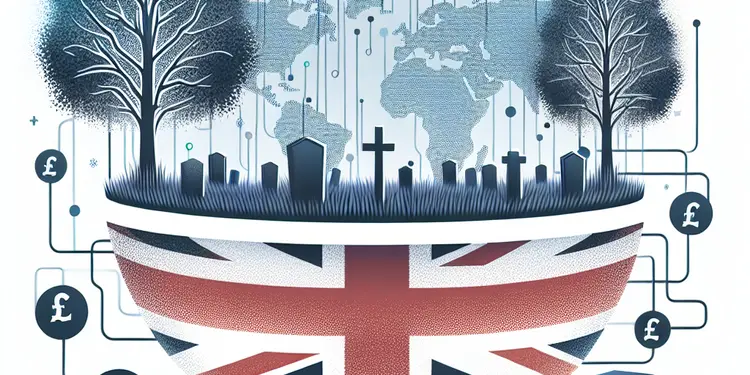
Are woodland burials environmentally friendly?
Relevance: 42%
-

What is the role of a water regulator in my claim?
Relevance: 42%
Introduction
Water loss, a significant environmental concern, affects various ecological, economic, and social dimensions in the UK. As the nation grapples with climate change and population growth, understanding the implications of water loss becomes increasingly important. This article explores the effects of water loss on the UK's environment, highlighting challenges and potential solutions.
Impact on Ecosystems
Water loss affects natural ecosystems, disrupting habitats for wildlife. Many species, including fish, birds, and amphibians, rely on stable water supplies for survival. Reduced water availability can lead to dry riverbeds and low reservoir levels, which negatively impact biodiversity. For instance, aquatic species may face challenges in finding adequate food and breeding grounds, leading to population declines. Riparian zones, which serve as vital buffer zones, can degrade due to insufficient water, affecting both plant and animal life.
Agricultural Consequences
Agriculture is a major component of the UK’s economy, relying heavily on water for crop irrigation. Water loss can lead to soil degradation and reduced agricultural yields, threatening food security. Farmers may face challenges in maintaining productivity, increasing the risk of crop failure. Additionally, stressed water resources can lead to increased competition for water between agricultural and urban areas, exacerbating tensions and resource management dilemmas.
Socioeconomic Effects
Water loss can have significant socioeconomic impacts, affecting households, industry, and public health. Water scarcity may lead to higher water bills as utilities invest in costly infrastructure upgrades to ensure adequate supply. Industrial sectors, such as manufacturing, may face increased operational costs due to water constraints, influencing economic competitiveness. Public health can also be impacted, as reduced water quality may increase disease risks and limit access to clean drinking water.
Climate Change Dynamics
Climate change exacerbates challenges associated with water loss in the UK. As rainfall patterns become less predictable, regions may experience more frequent droughts and water shortages. These variations can lead to increased pressure on water storage and distribution systems, necessitating innovative conservation and management strategies. Policies that enhance resilience to water loss and improve water management are essential for adapting to these climate dynamics.
Conservation and Management Solutions
To mitigate the impact of water loss, the UK can adopt a range of conservation and management solutions. Implementing improved water efficiency measures, such as reducing leakage in distribution systems, can significantly decrease water loss. Public awareness campaigns promoting water conservation practices at the household level can also contribute to reducing demand. Furthermore, investing in sustainable infrastructure, including rainwater harvesting systems and green stormwater management, can enhance resilience to water scarcity issues.
Conclusion
Water loss presents a multifaceted challenge for the UK, impacting ecosystems, agriculture, the economy, and society at large. Addressing these issues requires a comprehensive approach involving policy change, infrastructural investments, and public engagement. By fostering a culture of conservation and innovation, the UK can better manage its water resources, ensuring both environmental sustainability and societal well-being for future generations.
Introduction
Water loss is a big problem for the environment. It affects nature, the economy, and people in the UK. As the weather changes and more people live in the UK, it's important to know how losing water affects us. This article talks about what happens when we lose water and how we can fix it.
Impact on Ecosystems
Water loss harms nature and where animals live. Animals like fish, birds, and frogs need water to survive. Less water can dry up rivers and lakes, which is bad for animals and plants. For example, fish might have a hard time finding food and places to lay eggs, which means fewer fish in the future. Areas near water, like riverbanks, can also suffer, hurting both plants and animals there.
Agricultural Consequences
Farming is very important in the UK, and it needs a lot of water. Losing water can make soil worse and hurt crops, which is bad for food supplies. Farmers could have a hard time growing enough food, and this means crops might fail. There might be fights over water between farms and cities, making the situation even harder to manage.
Socioeconomic Effects
Losing water affects people, businesses, and health. Less water might make bills go up because fixing water systems costs money. Factories that need water could spend more money, making their products more expensive. Bad water quality can make people sick and make it harder to find clean drinking water.
Climate Change Dynamics
Climate change makes water loss worse in the UK. Rain is harder to predict, and some places might have more droughts. This puts stress on water systems, so we need new ways to save and manage water. Making rules to handle water better is important as the climate changes.
Conservation and Management Solutions
There are ways to deal with water loss in the UK. Fixing leaks in pipes can save a lot of water. Teaching people to save water at home helps too. Building things like rainwater tanks can help prepare for water shortages. These actions make the UK stronger against water problems.
Conclusion
Water loss is a big problem for nature, farms, the economy, and society in the UK. We need to change rules, build better systems, and work together to solve it. By saving water and being smart, the UK can protect its water resources for the environment and future generations.
Frequently Asked Questions
What are the primary causes of water loss in the UK?
Water loss in the UK is primarily caused by leaking infrastructure, climate change leading to reduced rainfall, and increased demand from population growth.
How does leaking infrastructure contribute to water loss?
Leaking infrastructure, such as aged pipes and inefficient water supply systems, results in significant water wastage before it even reaches consumers.
What role does climate change play in water loss in the UK?
Climate change can lead to altering precipitation patterns, causing droughts and reducing the availability of fresh water supplies.
How does a decrease in water availability affect the UK environment?
Reduced water availability can lead to habitat loss for aquatic species, reduced biodiversity, and stress on ecosystems that rely on consistent water supplies.
What is the impact of water loss on agriculture in the UK?
Water loss affects agriculture by limiting water available for irrigation, leading to reduced crop yields and impacting food supply.
In what ways does water loss impact UK wildlife?
Many species depend on consistent and clean water sources. Water loss can lead to habitat destruction, reduced food sources, and increased competition among species.
How does water loss affect urban areas in the UK?
Urban areas may experience water shortages which can affect domestic water supply, sanitation, and increase the urban heat island effect.
What are potential consequences of untreated wastewater due to water loss in the UK?
Untreated wastewater can lead to water pollution, affecting ecosystems and human health, and exacerbating the water quality problems.
How does water loss influence the UK's river ecosystems?
Reduced water levels can lead to habitat degradation, affect fish populations, and alter the natural flow regime of rivers, impacting biodiversity.
What measures can be taken to reduce water loss in the UK?
Improving infrastructure, implementing conservation practices, and enhancing water management policies can help reduce water loss.
What impact does water loss have on the UK's groundwater levels?
Water loss can lead to decreased recharge rates of aquifers, affecting long-term water availability and causing subsidence in some areas.
How is the UK's landscape changing due to water loss?
Water loss can lead to drying wetlands, reduced river flows, and changes in vegetation patterns, which can affect soil erosion and stability.
What effects does water loss have on the UK’s peatlands?
Drier conditions resulting from water loss can degrade peatlands, releasing stored carbon into the atmosphere and reducing their role in carbon sequestration.
How does water loss impact recreational areas in the UK?
Reduced water levels can affect activities like boating and fishing, decrease the aesthetic value of natural areas, and reduce biodiversity attraction.
What is the economic impact of water loss on the UK?
Water loss can lead to increased costs for water treatment and supply, impact agriculture and industry productivity, and increase flood risks due to ineffective drainage.
What are some long-term strategies to combat water loss in the UK?
Long-term strategies include investing in sustainable water infrastructure, utilizing technology for water conservation, and enhancing groundwater recharge.
How do invasive species exacerbate the water loss problem in the UK?
Invasive species can alter natural watercourses, increase sedimentation, and compete with native species for water resources, exacerbating the effects of water loss.
What role does public awareness play in addressing water loss in the UK?
Increased public awareness can lead to better water use practices, support for conservation policies, and pressure on industries and governments to act.
Can technology help mitigate water loss in the UK?
Yes, technology such as smart metering, leak detection systems, and advanced irrigation techniques can significantly reduce water loss.
How do policy decisions impact water loss management in the UK?
Effective policies that prioritize sustainable water management, infrastructure investment, and conservation measures are crucial to addressing water loss.
Why is water lost in the UK?
Water can be lost for different reasons. Here are some simple ways to understand why it happens:
- Leaking Pipes: Sometimes, water pipes have holes or cracks. This makes water drip out.
- Use of Water: People use a lot of water every day. This includes taking baths, washing clothes, and watering plants. When we use too much, there is less water left.
- Weather Changes: Hot weather can make water dry up faster. This means less water is left in rivers and lakes.
Tip: To help with understanding, use pictures or videos about water. They can show how water is lost and used.
In the UK, we lose water because:
- Pipes and other water equipment leak.
- The weather is changing, and it rains less.
- More people need more water.
To remember this, you can use pictures or make a list. Talking about it with someone can also help.
How do leaks in buildings and pipes make us lose water?
Sometimes, water can leak from pipes or buildings. When this happens, water is lost. This is called water loss.
Here are some simple ideas to help understand and stop water loss:
- Fix Leaks: If we find where the water is leaking, we can fix it.
- Use Technology: Tools like special devices can help find leaks faster.
- Check Regularly: Looking at pipes often can help us find leaks early.
These steps can help us save water and prevent loss.
Old pipes and bad water systems can leak. This means a lot of water is wasted before it gets to people who need it.
How does climate change affect water in the UK?
Climate change means the weather is changing. This can make it rain less, which can cause droughts. Droughts mean there is not enough water to drink and use.
You can use picture books or listen to stories about weather to learn more.
What happens to the UK when there is less water?
When there is not much water, it can change things in nature. Here are some things that might happen:
- Plants and animals may find it hard to live without enough water.
- Rivers and ponds might get smaller.
- Farmers may have trouble growing food.
To learn more, you can:
- Watch videos about how water helps nature.
- Read books with big pictures about water and nature.
- Talk with a teacher or adult to learn more.
When there is less water, it can cause problems. Fish and other water animals can lose their homes. There will be fewer different kinds of animals and plants. This makes it hard for nature to stay healthy.
How does losing water affect farming in the UK?
When we lose water, farms don't have enough to water plants. This means they can't grow as much food, which makes it hard to have enough for everyone to eat.
How does losing water hurt animals in the UK?
When there is not enough water, it can be hard for animals and plants to live. Here are some ways it can affect them:
- Animals like fish and frogs need water to live. Without water, they might not survive.
- Plants need water to grow. If plants don't grow, animals might not have enough food.
- Birds and other animals might have to move to find water and food.
If you want to learn more, you can:
- Look at pictures of animals and where they live.
- Watch videos about wildlife and water.
- Talk to a teacher or an adult for more help.
Many animals and plants need clean water to live. If there is less water, their homes can be destroyed. They might have less food and more animals will fight for it.
How does losing water affect cities in the UK?
When cities lose water, it can cause problems.
People, plants, and animals need water to live. Without water, they can struggle.
Parks and gardens might not be as green. Buildings can get too hot.
People might have rules about how much water they can use.
Here are some tools to help:
- Use pictures to understand better.
- Ask a friend or family member to explain.
Cities might not have enough water. This can make it hard to get water at home, keep places clean, and can make cities hotter.
What happens if dirty water isn't cleaned in the UK?
If dirty water isn't cleaned, it can cause problems. Here's what might happen:
- Rivers and seas can get polluted.
- Fish and animals can get sick or die.
- People might get sick if they swim in dirty water.
- Bad smells can happen near dirty water.
If you want to understand more, you can ask someone to help explain or use tools like pictures and videos to learn.
Dirty water that is not cleaned can make rivers, lakes, and oceans dirty too. This can hurt animals and plants that live there. It can also make people sick and make clean water harder to find.
How does losing water change rivers in the UK?
When there is less water in rivers, it can harm the places where animals live. This makes it harder for fish to survive and can change how the river normally flows. All these changes are bad for plants and animals.
Some tools and ways to help understand this are:
- Using pictures or diagrams to show what happens when water levels go down.
- Talking with someone about the changes to make it clearer.
How can we stop losing water in the UK?
Here are some simple ways to save water:
- Fix leaks: Drips waste lots of water.
- Turn off taps: Don't leave them running.
- Use a watering can: It's better than a hose.
- Take short showers: This saves water and energy.
- Collect rainwater: Use it for plants and gardens.
Tools to help:
- Water timers: They stop water at a set time.
- Smart meters: These show how much water you use.
Remember, saving water is good for everyone!
We can save more water by doing three things. First, we can make the water pipes and systems better. Second, we can use smart ways to take care of our water. Third, we can make better rules about how we use water.
How does losing water change the UK's underground water levels?
When the UK loses water, it can change how much water is under the ground. This means there might be less water to use.
If you want help to understand, you can use pictures or charts to see how water levels change. Talking with someone can also help you learn more.
When we lose water, it can make it harder for underground water supplies to fill up again. This means there might be less water for people to use in the future. In some places, the ground can even sink down because of this.
What changes are happening to the UK's land because of losing water?
When we lose water, it can make wetlands dry up. Rivers might not have much water. Plants might grow in different places. This can make the soil wash away or become unstable.
What happens to UK peatlands when they lose water?
When peatlands get too dry, they lose water. This makes them break down and let out carbon into the air. This means peatlands can't help as much with taking carbon out of the air.
Here are some tips to help you: - Break the text into small parts. - Use images or drawings to help understand. - Use a highlighter for key points. - Repeat reading to remember better.How does losing water affect fun places in the UK?
When we lose water, it can change places where people go to have fun. This includes parks, lakes, and rivers.
Less water can mean:
- Parks might be less green.
- Less water in lakes and rivers, making it harder to swim or fish.
- Animals and plants might have trouble living there.
To understand this better, you can:
- Look at pictures or videos of these places.
- Talk with someone who can explain it, like a teacher or a parent.
- Visit websites with easy information about parks and nature.
When there is not much water, it can change fun things like boating and fishing. It can also make nature look less pretty and mean fewer animals and plants live there.
How does losing water affect the UK’s money and jobs?
Losing water can make us spend more money to clean and supply water. It can also make farming and factories less productive. Losing water can also cause floods because water doesn't drain properly.
How can we save water in the UK for a long time?
There are ways to help save water for the future. We can build better ways to store and move water. We can use special tools and machines to save water. We can also put more water back into the ground.
How do invasive species make the water problem worse in the UK?
Here is what we mean:
- An invasive species is a plant or animal that comes from another place and grows very fast.
- These species can drink a lot of water.
- This can make it harder for local plants and animals to get the water they need.
- The UK already has some water problems, and these species make it worse.
Some tools and tips to help:
- Use simple charts or pictures to understand better.
- Ask someone to talk you through it.
- Look for videos online that explain invasive species.
Unwanted plants and animals can change water paths. They can make water dirty and fight with local plants and animals for water. This makes the water problems worse.
How does knowing about water problems help fix water waste in the UK?
When more people know why saving water is important, they can use water better at home. They can also help rules that save water and tell big businesses and the government to help too.
Can technology help stop losing water in the UK?
Technology means using machines or tools.
Mitigate means to make something less bad.
Water loss means losing water.
In the UK means in the country called United Kingdom.
This question is asking if using machines or tools can help stop losing water in the UK.
Here are some ways to understand better:
- Ask someone to explain the question to you.
- Draw a picture of the question.
- Use a computer or tablet to look up more about technology and water.
Yes, technology like smart meters, leak finders, and better watering methods can help save a lot of water.
How do rules affect how we save water in the UK?
Rules are like instructions that tell us what to do. When people in charge make rules about water, they can help us save it. This is called water loss management.
Here is how rules can help:
- Fixing leaks: Rules can tell companies to fix water pipes when they leak. This helps save water.
- Using less water: Rules can ask people to use less water, like taking shorter showers.
- Building better systems: Rules can help make new pipes and systems that lose less water.
Tools that can help:
- Timers: Use a timer to keep showers short.
- Water-saving devices: Use special gadgets that use less water.
- Water meter: Some houses have these to see how much water is used.
Remember, saving water is important for everyone!
Good plans are needed to save water. We should take care of our water systems and invest in buildings and tools that help keep water safe. We also need to be careful about how we use water.
Useful Links
This website offers general information and is not a substitute for professional advice.
Always seek guidance from qualified professionals.
If you have any medical concerns or need urgent help, contact a healthcare professional or emergency services immediately.
Some of this content was generated with AI assistance. We’ve done our best to keep it accurate, helpful, and human-friendly.
- Ergsy carfully checks the information in the videos we provide here.
- Videos shown by Youtube after a video has completed, have NOT been reviewed by ERGSY.
- To view, click the arrow in centre of video.
- Most of the videos you find here will have subtitles and/or closed captions available.
- You may need to turn these on, and choose your preferred language.
- Go to the video you'd like to watch.
- If closed captions (CC) are available, settings will be visible on the bottom right of the video player.
- To turn on Captions, click settings .
- To turn off Captions, click settings again.
More Items From Ergsy search
-

What impact does water loss have on the environment in the UK?
Relevance: 100%
-

How significant is the water loss problem in the UK?
Relevance: 84%
-

What are the financial implications of water loss for the UK?
Relevance: 83%
-

What causes water loss in the UK?
Relevance: 82%
-

How are new technologies helping to reduce water loss in the UK?
Relevance: 75%
-

Are there any government initiatives to tackle water loss in the UK?
Relevance: 75%
-

What is the role of consumers in reducing water loss?
Relevance: 75%
-

What measures are being taken to address water loss in the UK?
Relevance: 75%
-

Can individual actions significantly impact overall water loss?
Relevance: 69%
-

How much water is lost in the UK through poor infrastructure?
Relevance: 59%
-

Are there penalties for not maintaining water infrastructure?
Relevance: 55%
-

What are the environmental impacts of cremation?
Relevance: 55%
-

What is the expected timeframe to significantly reduce water loss in the UK?
Relevance: 54%
-

Are water companies responsible for maintaining water infrastructure in the UK?
Relevance: 53%
-

Are there legal guidelines for sewage discharge into UK waters?
Relevance: 51%
-

What happens if a water main bursts?
Relevance: 50%
-

Who regulates the performance and compliance of UK water companies?
Relevance: 50%
-

What does water infrastructure maintenance involve?
Relevance: 50%
-

Do water companies have to update the infrastructure?
Relevance: 49%
-

Are there penalties for water companies besides issuing refunds?
Relevance: 48%
-

What environmental considerations are there for ground burials?
Relevance: 48%
-

Building a Healthy Home Environment
Relevance: 48%
-

Do water companies have long-term infrastructure plans?
Relevance: 48%
-

Can weight loss drugs cause dehydration?
Relevance: 47%
-

What role do water companies play in sewage pollution?
Relevance: 47%
-

Why is it challenging to fix water leaks in the UK?
Relevance: 47%
-

How are infrastructure priorities determined by water companies?
Relevance: 46%
-

How transparent are water companies regarding infrastructure improvements?
Relevance: 46%
-

Are water companies responsible to maintain and update infrastructure in the UK?
Relevance: 46%
-

Are there initiatives to improve water efficiency in infrastructure?
Relevance: 46%
-

How do water companies detect leaks?
Relevance: 45%
-

What criteria were used to determine the refunds for UK water companies?
Relevance: 45%
-

How old is the water infrastructure in the UK?
Relevance: 44%
-

Are some UK beaches rated better for water quality than others?
Relevance: 44%
-

What are common signs of leaks in water infrastructure?
Relevance: 44%
-

Can drinking water help prevent tooth decay?
Relevance: 43%
-

How do water companies fund infrastructure updates?
Relevance: 43%
-

Can customers report issues with water infrastructure?
Relevance: 43%
-

Are woodland burials environmentally friendly?
Relevance: 42%
-

What is the role of a water regulator in my claim?
Relevance: 42%


